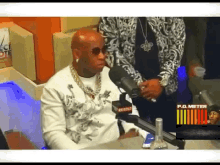Doobie Doo
Veteran

The Woman King’s History Is Worse Than I Thought

Share
- 122
September 16, 2022 10:42 AM
Listen to article
All Our Opinion in Your Inbox
NR Daily is delivered right to you every afternoon. No charge.SUBSCRIBE
In writing about the new film The Woman King, I assumed from the trailer and advance press releases that the central plot of the film would focus on the West African kingdom of Dahomey’s defeat and colonization by France in two wars in 1890 and 1892, thus whitewashing Dahomey’s prior, longstanding history as the most extreme example of a state built on the enslavement of free people among its own neighbors — a history in which its female soldiers, the “Amazons,” played a willing and culpable part. Well, Kyle Smith has seen the movie, and its history is even worse:
Even leaving aside the extensive slave-raiding and slave-trading history of Dahomey prior to 1823, this is comical: Oyo collapsed in 1835, and Ghezo used the opportunity created by the fragmentation of the empire to capture more slaves from Oyo’s now-unprotected population. Warring to enslave his neighbors was the main source of Ghezo’s wealth. He stoutly resisted every British entreaty and threat to get him to abandon slave-trading and get into the palm-oil business (which, it should be noted, was itself largely produced on slave plantations within West Africa). It is true enough that Oyo was a larger, once-mighty state that exacted tribute and sometimes worse from Dahomey, but that was all normal in West African politics — and had been since before the Europeans arrived in the 1440s.Set in 1823 . . . the film . . . positions Nanisca (based on a real person, although she lived in a later era) as the leader of an epic fight to destroy slavery. Under the approving eye of a wise king — also a real person — named Ghezo . . . she suggests transforming the country’s trade into one built on palm oil. All that is required to achieve this economic and moral revolution is one final decisive victory against the Oyo, who after being rejected in a demand for tribute seek to defeat and enslave the Agojie. Beat the Oyo, and slavery will be beaten.
A movie in which Ghezo and his female soldiers are anti-slavery figures in the 1820s makes about as much sense as a movie painting John C. Calhoun as an abolitionist.
The Woman King’s History Is Worse Than I Thought | National Review
A movie in which Ghezo and his female soldiers are anti-slavery figures in the 1820s makes about as much sense as a movie painting John C. Calhoun as an abolitionist.









